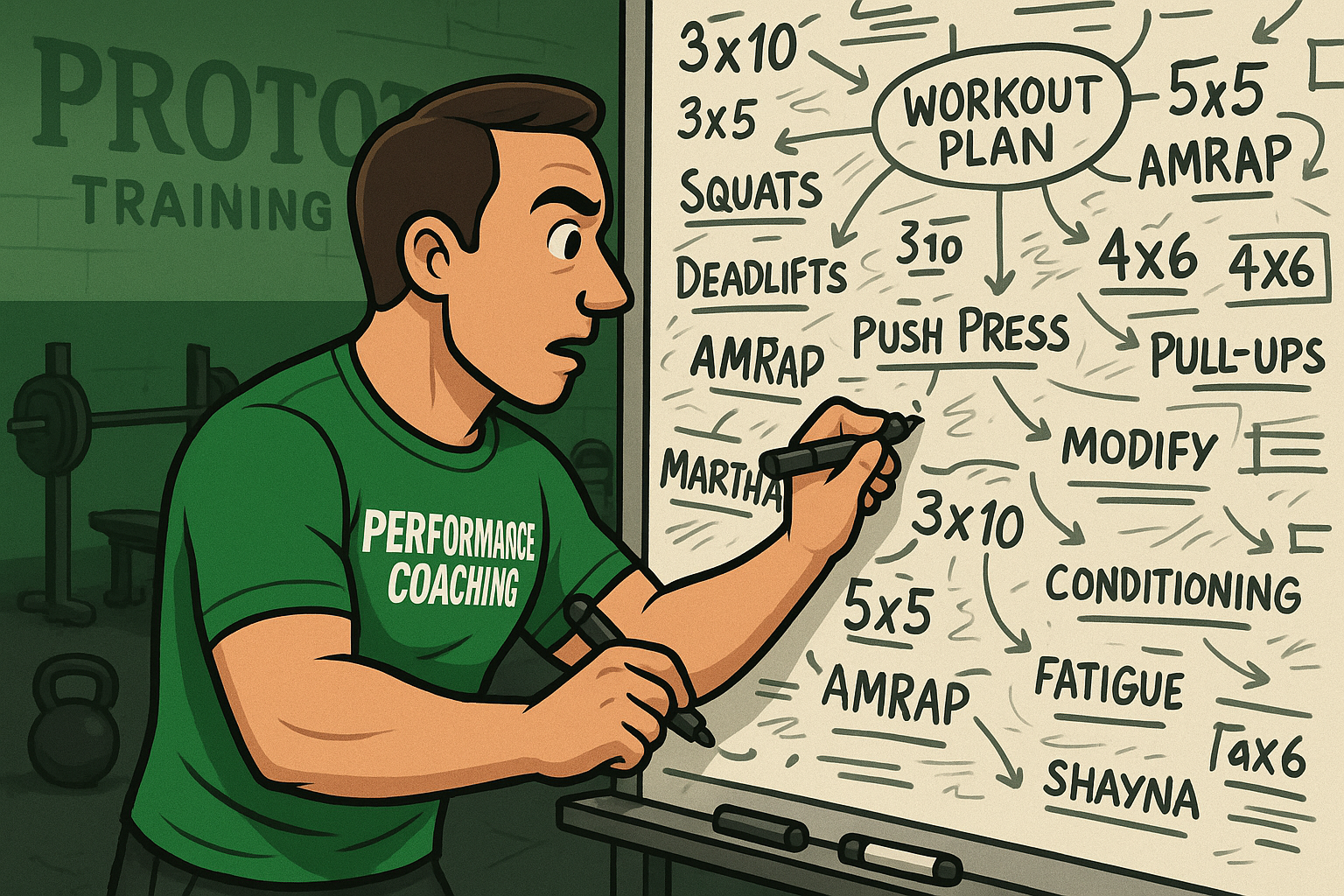Developing Young Leaders: Performances Anxiety
September 23, 2024
Developing Young Leaders: Performances Anxiety
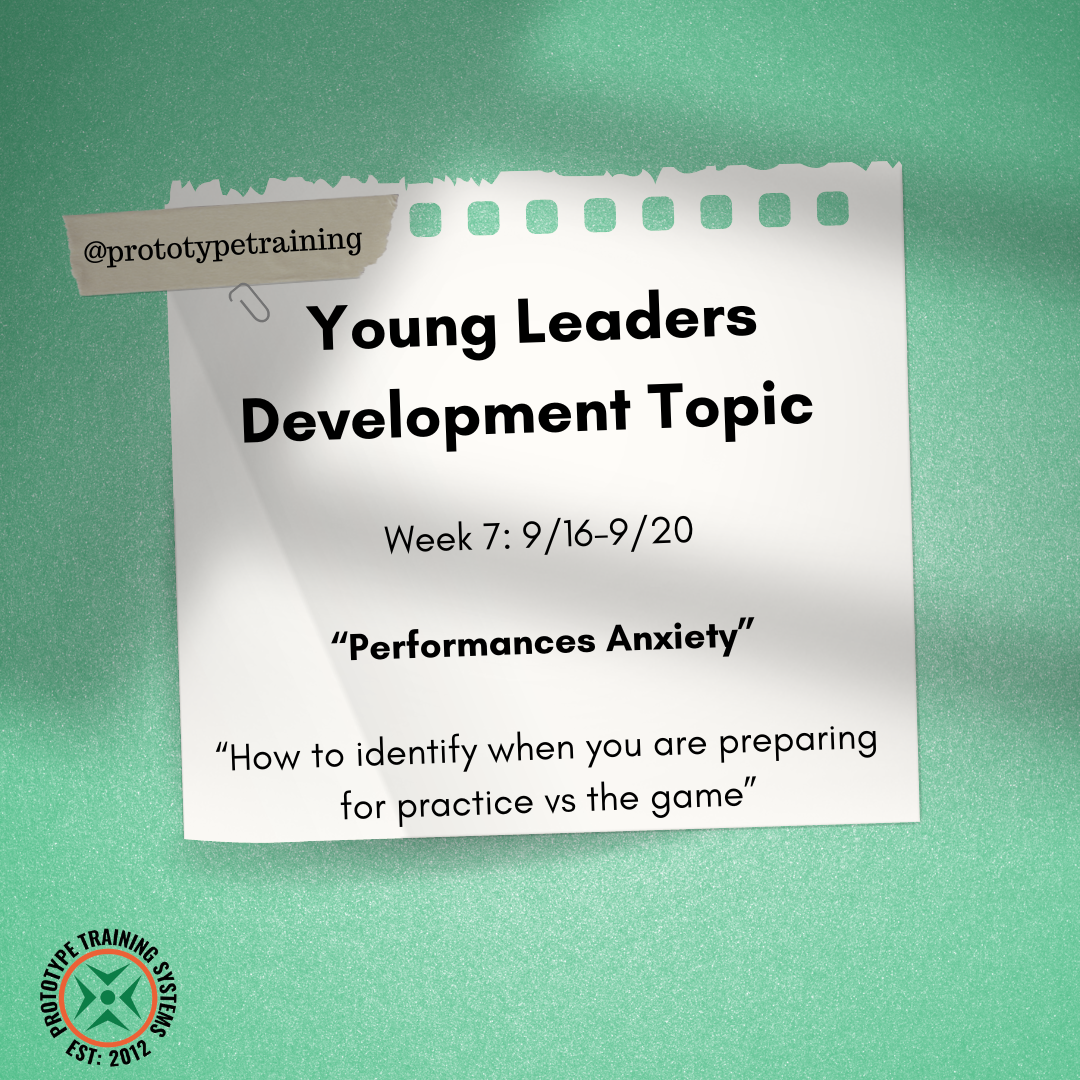
How to identify when you are preparing for practice vs the game
This week, we talked with the kids about performance anxiety—a normal and even helpful response when the stakes are high, like in a big game or competition. Anxiety helps us focus and prepare, but the problem arises when we feel it in everyday situations, like practice or small tasks. This creates unnecessary stress and stops us from taking risks, limiting growth.
Giving ourselves space for growth
One of the kids shared how they felt anxious every time they had to write, no matter how small the task. Another talked about how practice felt as stressful as a real game because they didn’t want to make mistakes. We discussed how this mindset affects their ability to improve. When we treat practice or small activities like the high-pressure moments, we don’t give ourselves space to learn and grow.
Practice in the parking lot before hitting the highway
Our analogy for this week was learning how to drive. When you first start driving, you learn in a parking lot, not on the highway. The parking lot is a place to make mistakes, take risks, and build confidence through little wins. As we continue to gather those wins, we eventually feel ready for the highway—the big moments that require all we’ve learned. It’s okay to take risks in the parking lot because that’s where you grow the most, you are driving slower and there really isn't anything to hit.
Below are pictures of the Westborough 7th and 8th grade girls' soccer team, with whom we focused on strength, stabilization, agility mobility, along with a lesson on performance anxiety in our Young Leader Development series. Caroline Queenan helped lead the session and shared her own experiences, which provided valuable insights and made the lessons even more relatable and beneficial for the players.
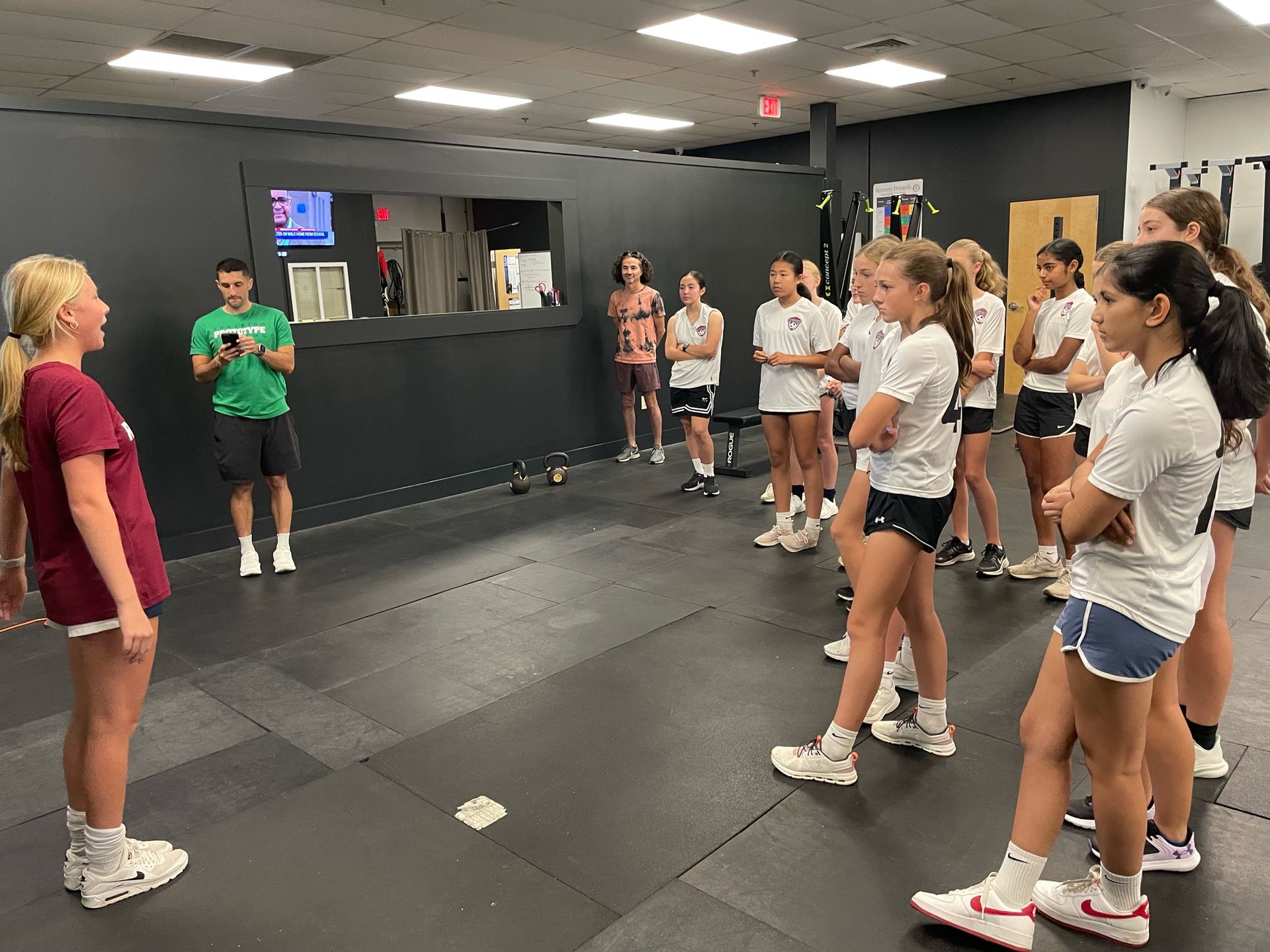
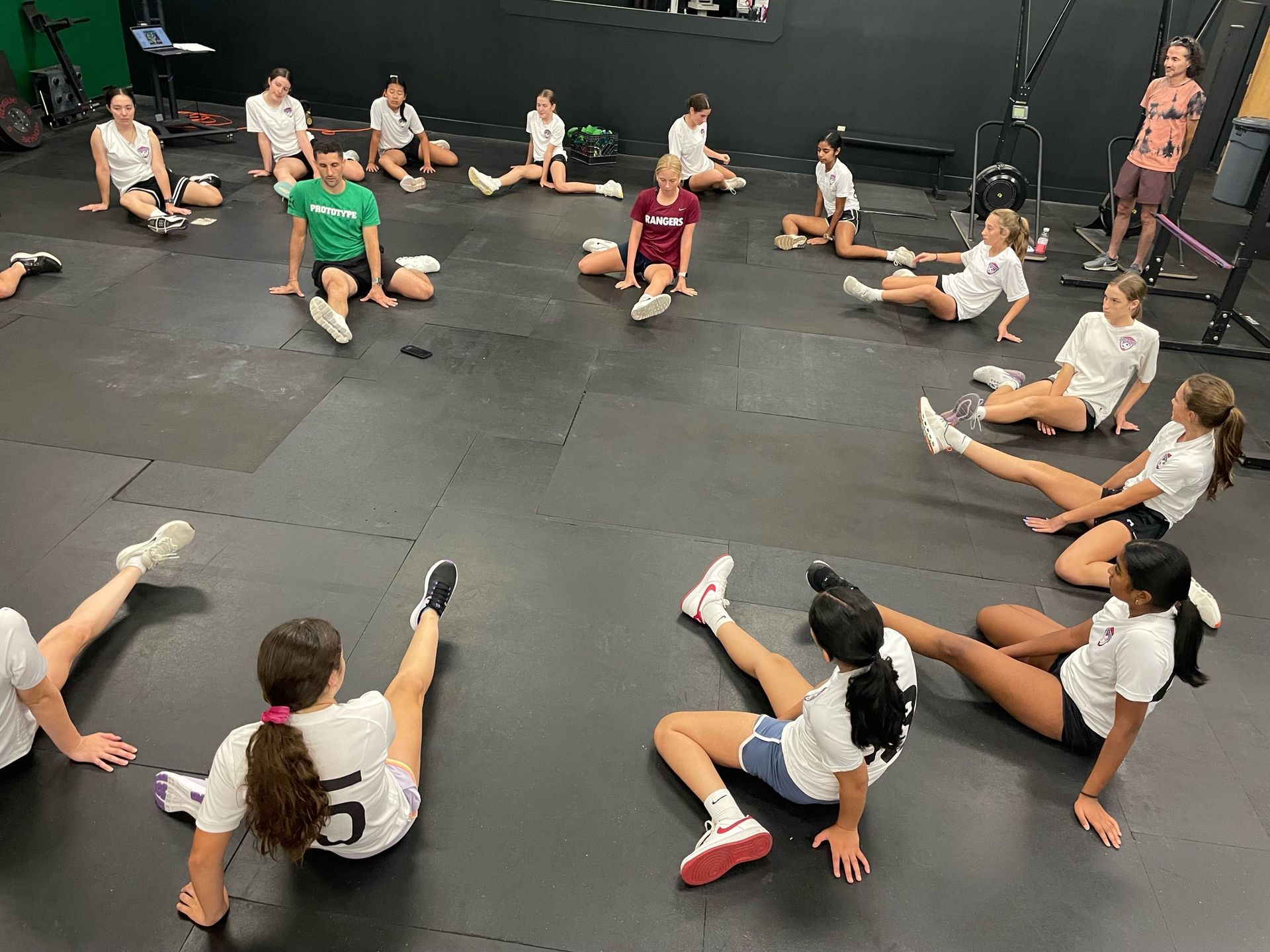
Don’t forget, we’re hosting a Youth Resiliency Workshop this Friday from 1-2:30pm. We have less than 10 spots left, and it’s free to all members. We’ll dive deeper into managing anxiety, stress, and building mental strength. This workshop will help kids learn how to approach challenges both in practice and in life with confidence. Sign-up here.
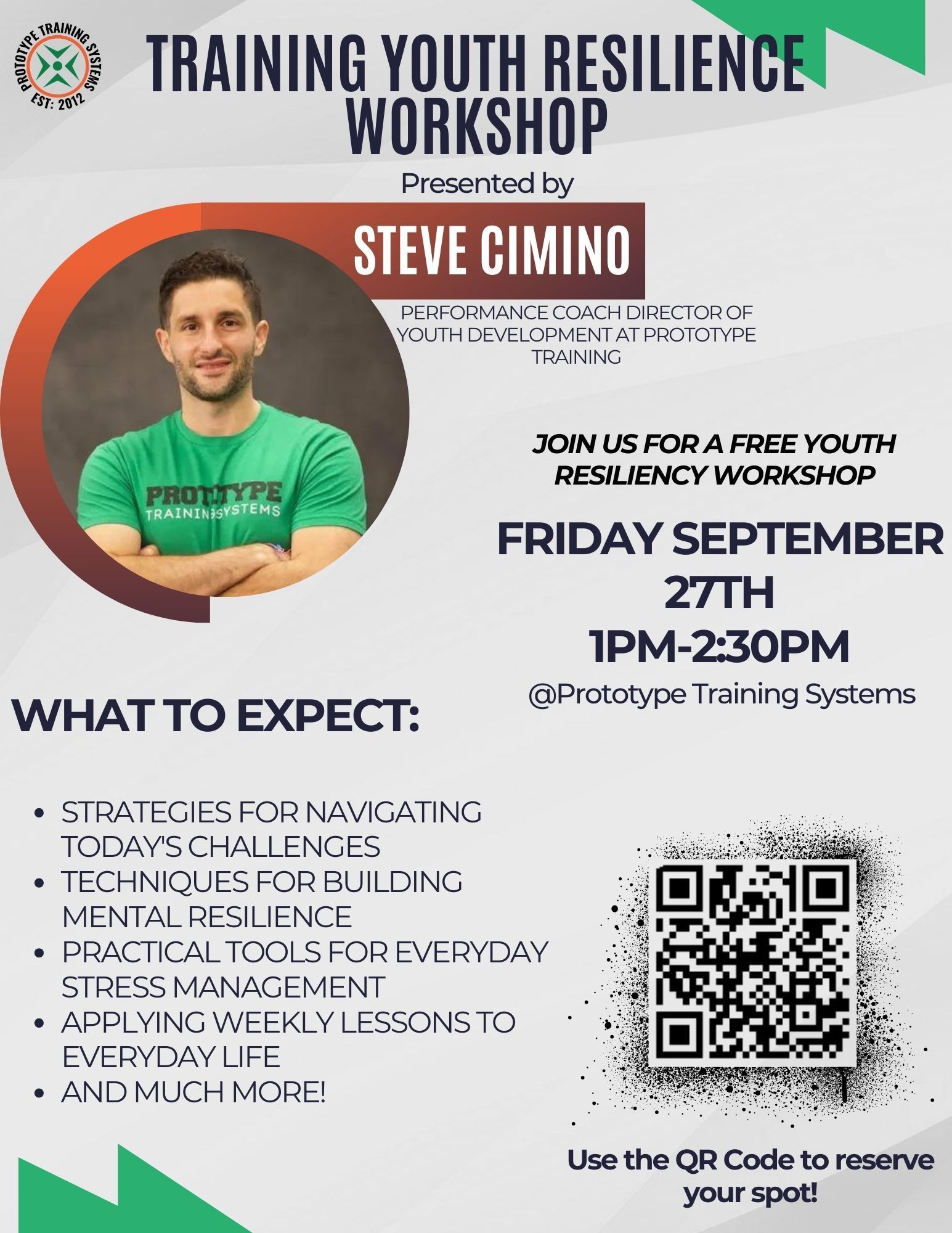
Previous Blogs
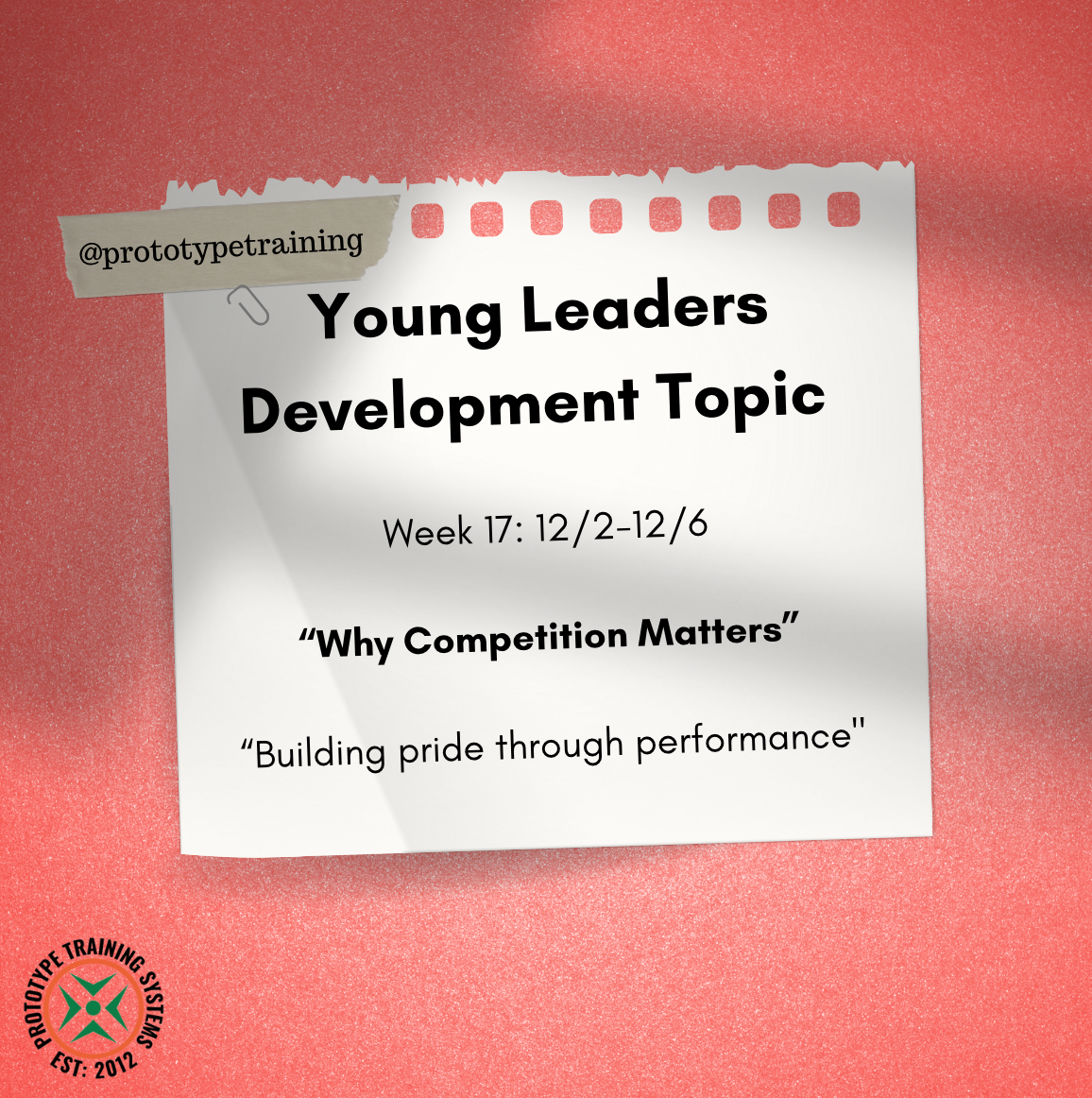
Yesterday was a great reminder of what a little friendly competition can do. We set up a simple 1-v-1 game: kids had to sprint, tap two cones, and race back to knock over a foam roller. Nothing fancy, just movement, focus, and a clear goal. But something cool happened. The second it became head-to-head, the energy shifted. Kids were locked in. They ran harder. They pushed themselves—not because they were told to, but because someone else was giving it their all too. Even the kids watching got invested—shouting encouragement, clapping for effort, reacting to every close finish. That sense of shared experience, of community rooted in challenge, is exactly what youth development should be about. It was a perfect example of how competition, even in its simplest form, can bring out motivation and effort . Not for a prize, but just for the challenge of it. More Than a Game: The Real Value of Friendly Competition In today’s world of participation medals and well-meaning “everyone wins” culture, it’s easy to misunderstand the role of competition. But when designed thoughtfully and guided with intention, competition doesn’t diminish self-worth—it enhances it. According to a 2019 study published in Frontiers in Psychology, structured competition can lead to higher intrinsic motivation, improved self-esteem, and a greater sense of personal accomplishment in youth participants (Bonfiglio et al., 2019). When kids compete, they learn that effort yields results. They learn how to win graciously—and perhaps more importantly—how to lose with resilience. They discover the value of hard work, discipline, and focus. They get to ask: “How fast can I be?” “How far can I push myself?” And, “What happens if I try just a little harder?” The Pride in Performance There’s a moment—right after a child finishes a race, or a round of a competitive game—where they catch their breath, stand a little taller, and smile. Whether they won or not is almost secondary. What matters is that they showed up and gave their best effort. That sense of pride? That’s not vanity. It’s the birth of confidence. And when that confidence is built through movement, through play, through sweating and trying and doing—it sticks. Not just in sport, but in school, at home, in friendships, and beyond. Final Thoughts Competition, when framed the right way, helps kids build confidence, stay motivated, and take pride in their effort. It’s not about winning — it’s about showing up, trying hard, and learning what they’re capable of. At its best, competition doesn’t separate kids — it brings them together, showing them how to push themselves while supporting each other along the way.
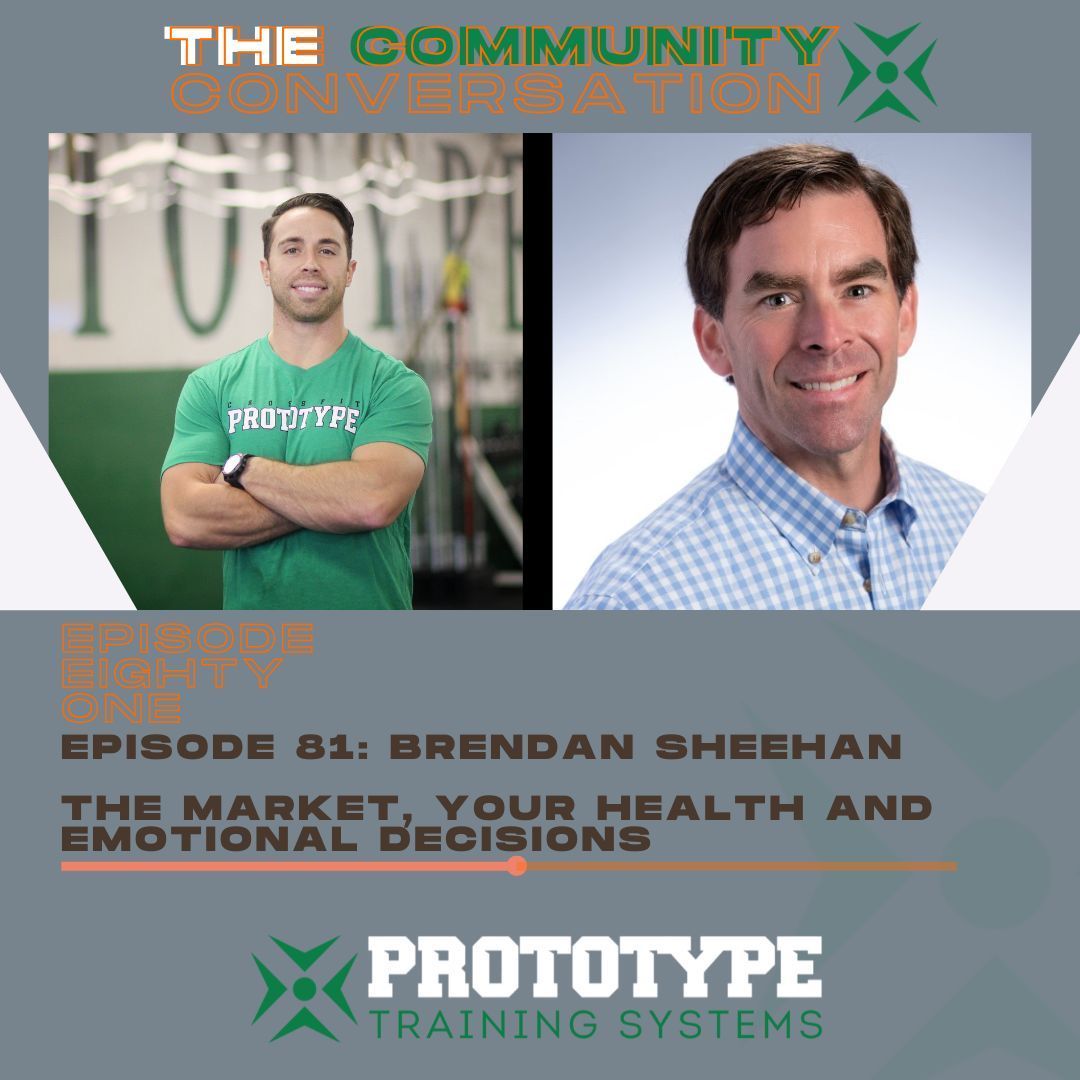
It’s no secret — we’re living in a world that feels increasingly volatile. Financial markets are unpredictable. The news cycle is overwhelming, social media noise is constant and it's harder and harder to sort through what's real and what's not. And when uncertainty rises, it's human nature for people to start making emotional decisions. Being in the fitness industry for close to 20 years and operating Prototype Training Systems since 2012, I've seen this happen time and time again — not just in the stock market — but in our gym community. When we feel stressed financially (and trust me, i've been there as an entrepreneur), one of the first things they often cut is their investment in their health. Cancelling the gym. Skipping workouts. Pressing pause on coaching or training. We can go into a frenzy of what needs to be prioritized and what doesn't, and often it's rooted in anxiety and fear. On the surface, it makes sense: "Let me tighten up my budget until things feel safer." But here’s the truth — it’s completely backwards . Emotional Decisions Rarely Lead to Positive Outcomes In a recent conversation I had with Brendan Sheehan, founder of Waymark Wealth Management (and one of our community business sponsors), we talked about this exact thing. As we are facing that uncertainty now in the market. Click the link to listen to the full podcast! Brendan was sharing when the market drops — whether it’s 5%, 10%, or more — people panic. But the data shows this happens all the time. He shared that "the m arket dips of 5-10% happens three times a year on average." Dips of 10-20%? Happens at least once a year. It’s not unusual — but when emotions take over, we make decisions that can hurt long-term. And this same pattern can show up in health and fitness. Your Health is Not a Luxury — It’s Essential Let’s be real — when life feels hard, stressful, or uncertain, you need your health more than ever. Exercise isn't just about aesthetics or performance — it's your anchor. Working out helps you regulate stress, sleep better, stay clear-headed, and avoid the emotional roller coaster that uncertainty brings. Cutting your health investments when things get tough is like saying: "The storm is coming... so I'm going to throw away my umbrella." It doesn’t make sense, but this what happens when emotions are high, it's REALLY hard to make logical decisions. We can get into a binary mode of thinking... then we take action which often isn't fully thought out. The Vicious Cycle: Stress → Cut Health → Decline → Regret Here's the common pattern we’ve seen over the years... and I would argue is common in every gym across the country... Things get tough financially or emotionally. We go into "panic" mode... start to take action. People cut their gym membership or stop exercising. Maybe you over narrate it's not worth it... maybe you over narrate I'll just do it on my own and change my entire routine... or maybe you think it will only be very short term. Then, stress increases. Energy drops. Sleep gets worse. Health declines — physically and mentally. Time passes... regret kicks in. "I wish I hadn't stopped. Now it’s even harder to get back ." Sound familiar? It's a vicious cycle and REALLY hard to break. We’ve seen it over and over — and we’ve helped people climb back out of it. But we’d rather help you avoid that spiral in the first place. What Should You Do Instead? Have faith in your routine and take a second to pause before making a major life change. Double down on habits that ground you — like fitness, community, and nutrition. Talk to a coach. Share what’s stressing you out — we’re here to help. Be curious — ask questions before making big decisions. Remember: health is not the problem — it’s the solution. Final Thought: Uncertainty will always be part of life. Markets go up and down. Challenges will come and go. But the best investment you can make — in any economy — is in your physical and mental well-being. At Prototype Training Systems, we’re more than a gym. We’re a community that helps people stay grounded, consistent, and healthy — no matter what’s happening outside our walls. If you’re feeling the pull to cut your health in hard times — let’s talk. Book a Free Goal Review Session with a coach... seriously, we're here to help. We’ll help you navigate uncertainty the right way — by staying strong, staying consistent, and investing in yourself.
Climb to New Heights
Prototype Training Systems is more than a gym - it is a lifestyle. Join us today!

